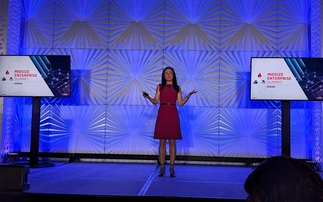This week the ICO used its power to fine organisations for breaching the Data Protection Act, and SAP was ordered to pay Oracle $1.3bn
"These first monetary penalties send a strong message to all organisations handling personal information. Get it wrong and you do substantial harm to the reputation of your business. You could also...
To continue reading this article...
Join Computing
- Unlimited access to real-time news, analysis and opinion from the technology industry
- Receive important and breaking news in our daily newsletter
- Be the first to hear about our events and awards programmes
- Join live member only interviews with IT leaders at the ‘IT Lounge’; your chance to ask your burning tech questions and have them answered
- Access to the Computing Delta hub providing market intelligence and research
- Receive our members-only newsletter with exclusive opinion pieces from senior IT Leaders






















